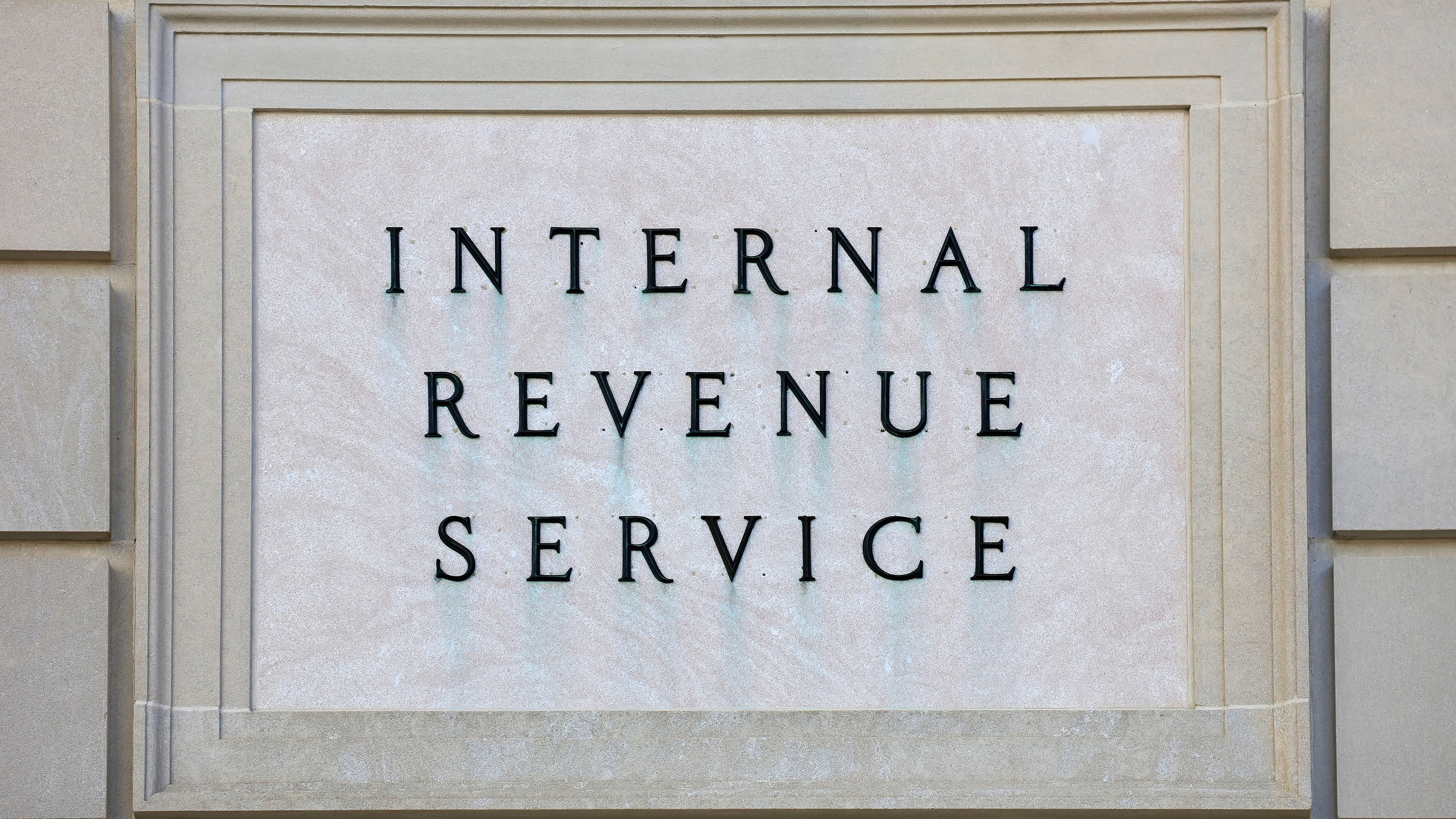Will Your State Rebate Check Be Taxed for 2023?
Here's what the IRS says about taxing 'state stimulus checks' and other special state rebates and what it could mean for you.


Profit and prosper with the best of Kiplinger's advice on investing, taxes, retirement, personal finance and much more. Delivered daily. Enter your email in the box and click Sign Me Up.
You are now subscribed
Your newsletter sign-up was successful
Want to add more newsletters?

Delivered daily
Kiplinger Today
Profit and prosper with the best of Kiplinger's advice on investing, taxes, retirement, personal finance and much more delivered daily. Smart money moves start here.

Sent five days a week
Kiplinger A Step Ahead
Get practical help to make better financial decisions in your everyday life, from spending to savings on top deals.

Delivered daily
Kiplinger Closing Bell
Get today's biggest financial and investing headlines delivered to your inbox every day the U.S. stock market is open.

Sent twice a week
Kiplinger Adviser Intel
Financial pros across the country share best practices and fresh tactics to preserve and grow your wealth.

Delivered weekly
Kiplinger Tax Tips
Trim your federal and state tax bills with practical tax-planning and tax-cutting strategies.

Sent twice a week
Kiplinger Retirement Tips
Your twice-a-week guide to planning and enjoying a financially secure and richly rewarding retirement

Sent bimonthly.
Kiplinger Adviser Angle
Insights for advisers, wealth managers and other financial professionals.

Sent twice a week
Kiplinger Investing Weekly
Your twice-a-week roundup of promising stocks, funds, companies and industries you should consider, ones you should avoid, and why.

Sent weekly for six weeks
Kiplinger Invest for Retirement
Your step-by-step six-part series on how to invest for retirement, from devising a successful strategy to exactly which investments to choose.
State "stimulus" checks, tax rebates, and inflation relief payments are popular. Millions of people in 21 different states received special state payments last year. And several states are sending more rebates and surplus tax refunds this year.
So, if you’ve received a special state payment or are looking forward to one, a question on your mind might be whether you’ll have to pay tax on that money — the IRS has offered an answer.
The agency announced guidance on the federal tax status of these state “stimulus” and other special payments made to individuals. The guidance, which applies to payments received in 2023, is part of the agency’s effort to make the tax consequences surrounding these payments more straightforward for taxpayers.
From just $107.88 $24.99 for Kiplinger Personal Finance
Become a smarter, better informed investor. Subscribe from just $107.88 $24.99, plus get up to 4 Special Issues

Sign up for Kiplinger’s Free Newsletters
Profit and prosper with the best of expert advice on investing, taxes, retirement, personal finance and more - straight to your e-mail.
Profit and prosper with the best of expert advice - straight to your e-mail.
State 'stimulus' check 2023 update
Clarity from the IRS on so-called state “stimulus checks” is essential because millions of taxpayers across the U.S. have received special rebates and payments as states return surplus revenue to eligible residents. As Kiplinger has reported, these payments vary by state, type, amount, and eligibility criteria.
- Last year, the IRS issued guidance applicable to 2022 state payments.
- At that time, the agency said most of the state stimulus payments weren’t taxable, but that in some cases, taxpayers might need to report the payments on their federal returns.
- The IRS also suggested that some taxpayers consider amending their 2022 tax returns if they reported the special state payments as income.
This latest guidance addresses several questions involving 2023 special state payments. Here’s what you need to know.
IRS weighs in on state rebate payments

In most cases, according to the IRS, taxpayers who receive special state payments (one-time refunds, rebates, or other payments) in 2023 won't have to include the payments in their income for federal tax purposes. That is especially relevant for those who opt for the standard deduction on their federal returns. (Most taxpayers claim the standard deduction.)
What if you itemize deductions? If you itemize deductions on your federal income tax return and receive a state tax refund or special payment, the IRS says you might need to include it in your federal income. But that is only if you deduct the state tax paid. (Due to the $10,000 limit on itemized deductions for state income and property taxes, some taxpayers won't need to include the state refund in their income.)
That can be confusing, so if you’re unsure, consult a trusted tax professional before filing your 2023 federal return.
Spillover 'stimulus' payments from last year
It's worth noting that the IRS also provided guidance on a specific situation that occurred last year with certain state programs. (These programs provided payments that eligible residents didn’t receive until early 2023.)
- According to the IRS, even if you don’t receive your special state payment for 2022 until 2023, you can still exclude it from your federal income.
- (You would follow the same rules that applied to the 2022 state payments.)
'General welfare' program payments
In addition, the latest IRS guidance provides information on what the agency refers to as "state general welfare programs." Certain states offer payments to individuals intended to support the general well-being of individuals or families in need. The IRS considers this money non-taxable income, but only if it comes from a governmental fund and is not compensation for services rendered.
Note: Determining whether payments qualify for this exclusion can be complex and depends on various factors. The IRS provides an example to help clarify how this general welfare exclusion works.
Is the Colorado TABOR refund taxable?
There has been debate recently about whether Colorado TABOR (Taxpayer Bill of Rights) "Cash Back" payments are exempt from federal income tax. The new IRS guidelines don't explicitly mention the Colorado payments, which are essentially refunds to Coloradans of state sales taxes paid.
Several Colorado state legislators and Gov. Jared Polis have requested that the IRS clarify this issue and avoid a situation where the TABOR refunds are considered taxable.
Meanwhile, the IRS is requesting comments on the federal tax treatment of special state payments, particularly those similar to TABOR refunds. The deadline for submitting comments on the guidance is Oct. 16, 2023.
Will the IRS tax Minnesota ‘Walz checks’?
According to Minnesota Governor Tim Walz, the IRS will tax rebates sent to eligible Minnesota residents in 2023. These rebates, commonly known as "Walz checks," were worth up to $1,300 in some cases and were a result of a $3 billion tax relief bill passed earlier this year. (That bill also included a child tax credit for the state worth up to $1,750 per child dependent.)
Walz strongly disapproved of the IRS' decision to consider the rebate checks received by Minnesotans as taxable income. The Governor's frustration was evident during a December news conference discussing the state's projected budget surplus for 2024. “It’s bull—,” Walz told reporters.
Meanwhile, the Minnesota Department of Revenue plans to send 1099-MISC forms to rebate recipients for federal tax return purposes.
More: IRS Will Tax Minnesota 'Rebte Walz checks'
Related Content
Profit and prosper with the best of Kiplinger's advice on investing, taxes, retirement, personal finance and much more. Delivered daily. Enter your email in the box and click Sign Me Up.

Kelley R. Taylor is the senior tax editor at Kiplinger.com, where she breaks down federal and state tax rules and news to help readers navigate their finances with confidence. A corporate attorney and business journalist with more than 20 years of experience, Kelley has helped taxpayers make sense of shifting U.S. tax law and policy from the Affordable Care Act (ACA) and the Tax Cuts and Jobs Act (TCJA), to SECURE 2.0, the Inflation Reduction Act, and most recently, the 2025 “Big, Beautiful Bill.” She has covered issues ranging from partnerships, carried interest, compensation and benefits, and tax‑exempt organizations to RMDs, capital gains taxes, and energy tax credits. Her award‑winning work has been featured in numerous national and specialty publications.
-
 Quiz: Do You Know How to Avoid the "Medigap Trap?"
Quiz: Do You Know How to Avoid the "Medigap Trap?"Quiz Test your basic knowledge of the "Medigap Trap" in our quick quiz.
-
 5 Top Tax-Efficient Mutual Funds for Smarter Investing
5 Top Tax-Efficient Mutual Funds for Smarter InvestingMutual funds are many things, but "tax-friendly" usually isn't one of them. These are the exceptions.
-
 AI Sparks Existential Crisis for Software Stocks
AI Sparks Existential Crisis for Software StocksThe Kiplinger Letter Fears that SaaS subscription software could be rendered obsolete by artificial intelligence make investors jittery.
-
 How to Open Your Kid's $1,000 Trump Account
How to Open Your Kid's $1,000 Trump AccountTax Breaks Filing income taxes in 2026? You won't want to miss Form 4547 to claim a $1,000 Trump Account for your child.
-
 In Arkansas and Illinois, Groceries Just Got Cheaper, But Not By Much
In Arkansas and Illinois, Groceries Just Got Cheaper, But Not By MuchFood Prices Arkansas and Illinois are the most recent states to repeal sales tax on groceries. Will it really help shoppers with their food bills?
-
 7 Bad Tax Habits to Kick Right Now
7 Bad Tax Habits to Kick Right NowTax Tips Ditch these seven common habits to sidestep IRS red flags for a smoother, faster 2026 income tax filing.
-
 10 Cheapest Places to Live in Colorado
10 Cheapest Places to Live in ColoradoProperty Tax Looking for a cozy cabin near the slopes? These Colorado counties combine reasonable house prices with the state's lowest property tax bills.
-
 New Gambling Tax Rule Impacts Super Bowl 2026 Bets
New Gambling Tax Rule Impacts Super Bowl 2026 BetsTaxable Income When Super Bowl LX hype fades, some fans may be surprised to learn that sports betting tax rules have shifted.
-
 Should You Do Your Own Taxes This Year or Hire a Pro?
Should You Do Your Own Taxes This Year or Hire a Pro?Taxes Doing your own taxes isn’t easy, and hiring a tax pro isn’t cheap. Here’s a guide to help you figure out whether to tackle the job on your own or hire a professional.
-
 Can I Deduct My Pet On My Taxes?
Can I Deduct My Pet On My Taxes?Tax Deductions Your cat isn't a dependent, but your guard dog might be a business expense. Here are the IRS rules for pet-related tax deductions in 2026.
-
 Don't Overpay the IRS: 6 Tax Mistakes That Could Be Raising Your Bill
Don't Overpay the IRS: 6 Tax Mistakes That Could Be Raising Your BillTax Tips Is your income tax bill bigger than expected? Here's how you should prepare for next year.